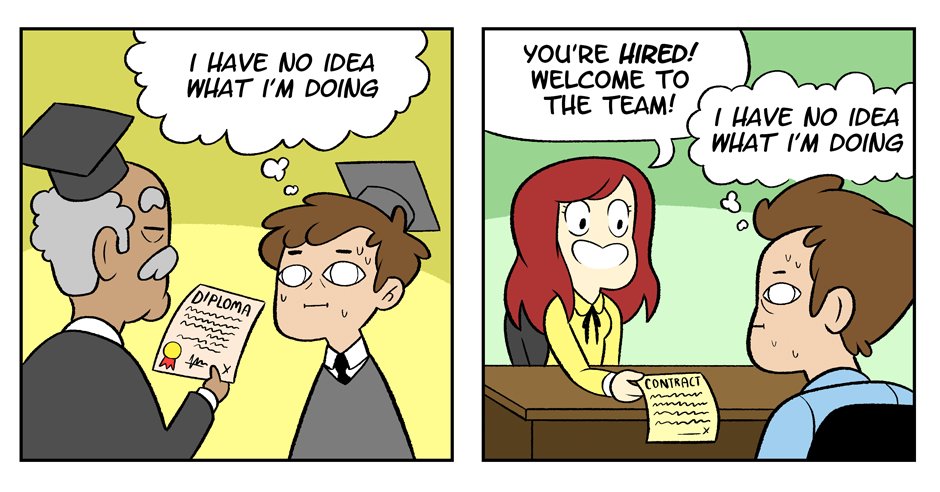Last weekend I saw the trailer for the upcoming film Yesterday, which spins the yarn of a down-on-his-luck musician who wakes up in world that doesn’t remember the Beatles, so he takes credit for their songs to get rich and famous. In other words, he’s an imposter.
While he is an intentional deceiver, I discovered at the end of my first year as a graduate student that I, too, am an imposter. Or at the very least I feel like one.

http://www.collegehumor.com/post/7054961/what-it-feels-like-to-have-imposter-syndrome .
This is called Imposter Syndrome. In a nutshell, it’s the fear that one doesn’t deserve their accolades and accomplishments and will exposed as a “fraud.” That’s how I felt after getting A’s on both of my final papers this past semester—which were about kaiju and superheroes—because I thought they either weren’t written well or that their ideas were faulty. Along with that, I maintained a 4.0 GPA (something I hesitate to say for fear of jinxing myself), which is better than what I had as an undergrad. Not only that, but several professors have been advocating for me to get either a PhD. or an MFA. Apparently, I make connections in my schoolwork only PhD. caliber students make. Some of the same professors have said I’m an “excellent teacher” given my success as a graduate teaching assistant.
You’d think I’d read/hear all of this and say, “I must be good at this school thing,” but instead I make excuses for why it’s not that impressive. Those include 1) my aforementioned inferior grades in undergrad, 2) people saying the university I’m attending isn’t that hard (there was once a joke that said its acronym stood for “I Paid For What?!”), and 3) feeling like I’m not as well-read as others and have to hide the fact that I haven’t read/seen/played certain media that supposedly everyone has. This is true of me not only as a grad student, but as a writer, a dancer, a son, a friend, a (potential) boyfriend, and everything else.
The truth is—if I may take the risk of being a little vulnerable—I’ve struggled with self-confidence most of my life. Even if my performance and/or ability was exceptional, I felt like it didn’t measure up to people’s expectations. I could and would still be rejected, and I frequently was. As I grew older, I started playing the “comparison game,” and since I tended to befriend really intelligent people, I felt like I was the “dumb one” in the “smart group” (not realizing that this still made me smarter than most people). I mean, when you hang out with Nick Hayden, who I’ve described as an intellectual One-Punch Man (he got a nearly perfect score in two years of Greek classes—and he took it for fun!), it’s hard to think your knowledge and writing is up to snuff. (What’s crazy is Nick is too humble to admit any of this). Paradoxically, whenever I would, for example, get a bad assessment or a rejection letter, I would say I deserved it but still get angry and think nobody recognized my talent. I, like all human beings, am full of contradictions.
Sadly, imposter syndrome isn’t recognized as a mental illness, although many of its symptoms, like depression, are seen as such. Those can be treated, but that won’t cure it. A pill can’t magic this away. In order to do that, I have to dig deep within myself, identify my anxieties, face them, and surround myself with supportive and truthful people. Ultimately, though, it’s up to me accept the fact as imperfect as I am, I am worthy of their praise.
Do you struggle with imposter syndrome? How do you deal with it? Why do you suffer from it?
